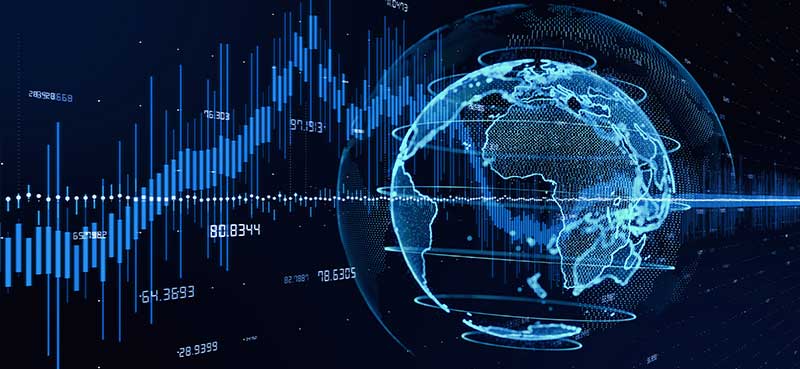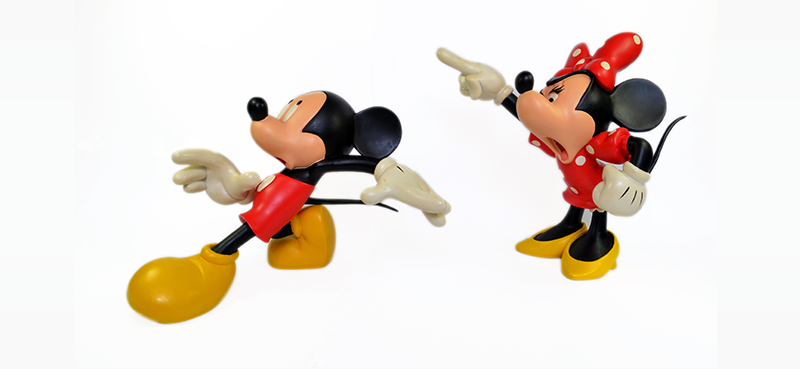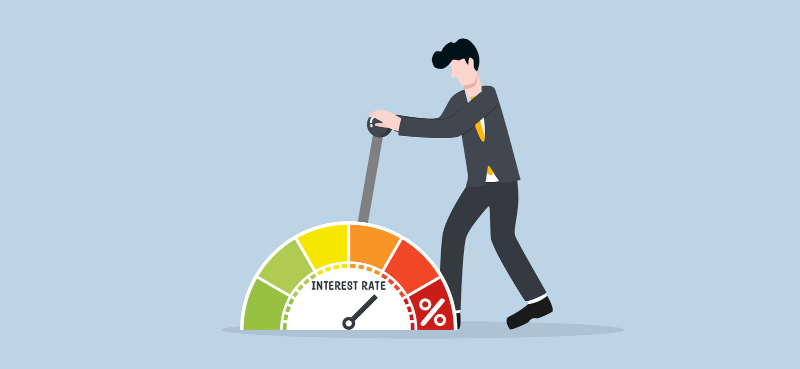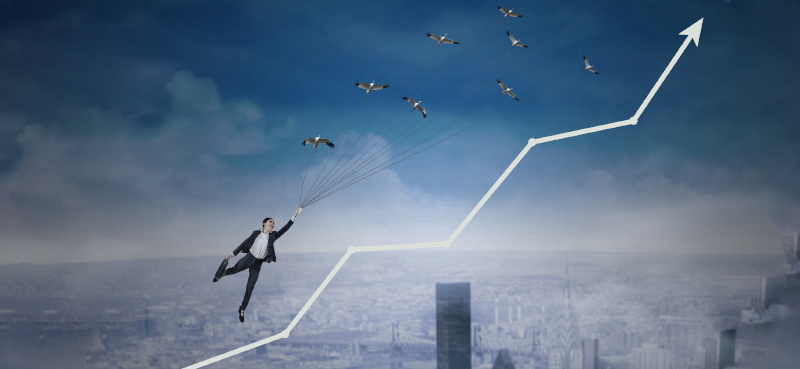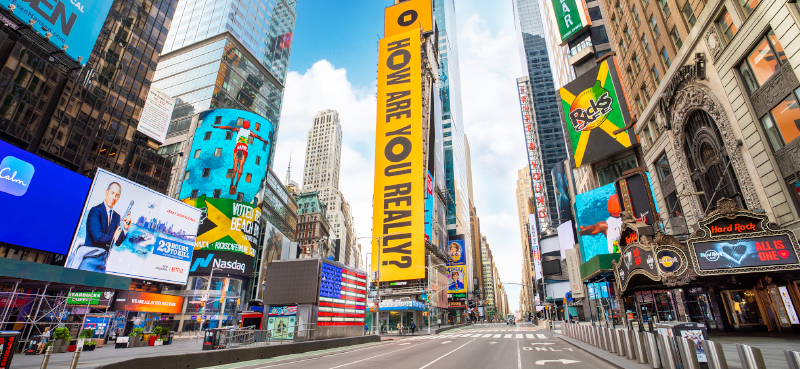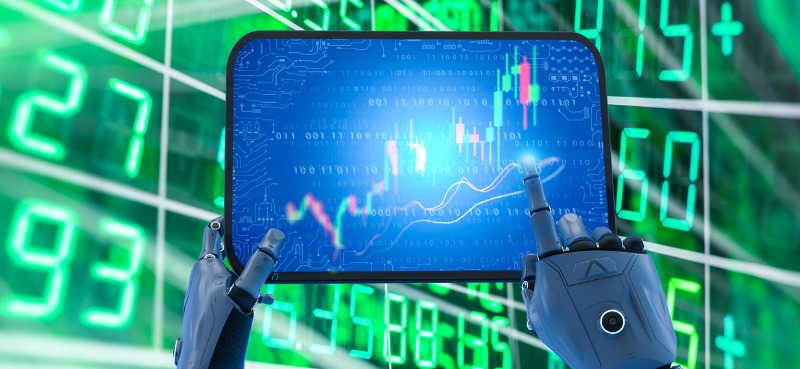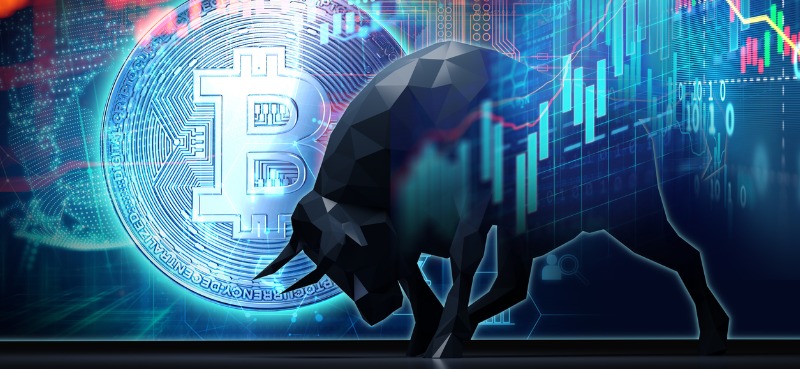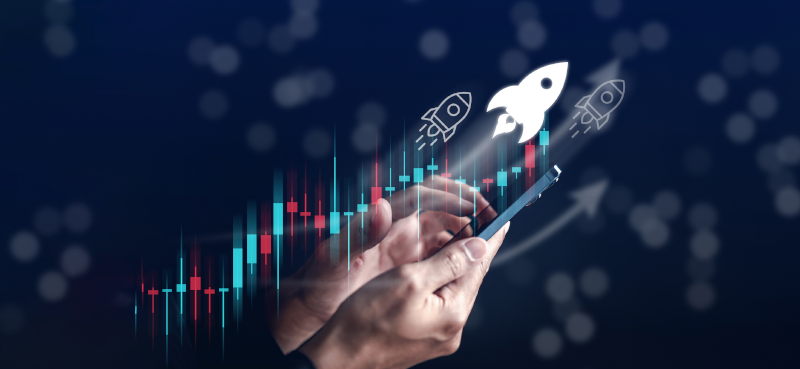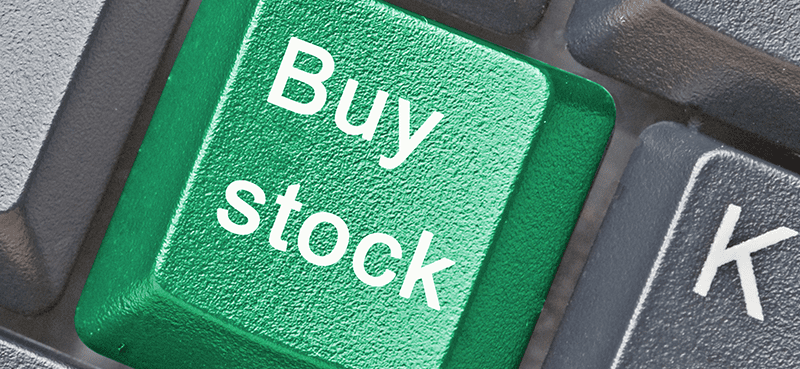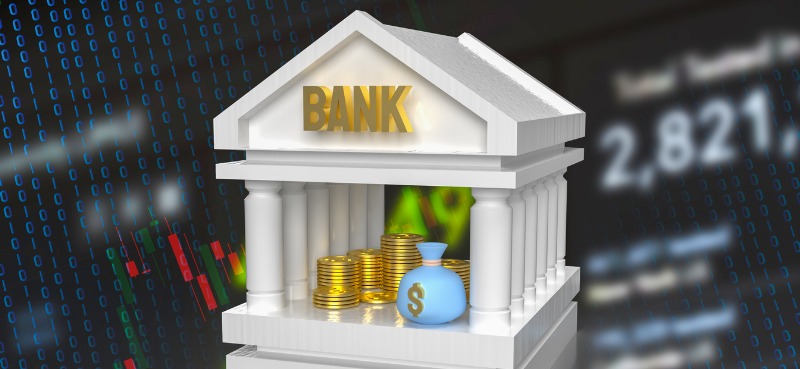Frank is traveling, leaving me (Daniel Creech) behind the mic today to discuss the headlines…
I break down what recent actions by Russia’s central bank say about commodity prices… Why the Russian ruble recovered all its losses following the invasion of Ukraine… How future sanctions will impact commodities like oil, gas, and gold… And how individual investors can profit as the global financial system undergoes massive changes.
On a more lighthearted note, I explain what Elon Musk’s latest move says about activist investors… and if Twitter (TWTR) could become the next meme stock.
- Where’s Frank? [0:15]
- Why you should pay attention to the ruble [3:35]
- Will currencies become linked to commodities? [6:00]
- Stocks that will profit from sanctions against Russia [13:10]
- The new activist investor [14:00]
- Is Elon Musk the new BlackRock? [20:50]
Wall Street Unplugged | 876
Two easy ways to profit from the new global financial system
Announcer: Wall Street Unplugged looks beyond the regular headlines heard on mainstream financial media to bring you unscripted interviews and breaking commentary direct from Wall Street right to you on main street.
Daniel Creech: Good morning. Good day. Good afternoon. Thank you for tuning in to the Wall Street Unplugged podcast. It is Tuesday, April 5th, and I am your guest host behind the mic, Daniel Creech, senior analyst here at Curzio Research, filling in for the one and only Frank Curzio, who, if I had to guess, is somewhere between New Orleans and Amelia Island with the biggest grin on his face, on cloud nine, not worrying about a thing, lack of sleep, probably losing his voice, high cost of gas prices. All that takes a backseat. Why? Because the Kansas Jay Hawks are the NCAA men’s basketball champions in what was a thrilling game, a record setting game, because it looks like they broke a record from 1963, the largest deficit comeback to win. They were down, I believe, 16 points at one time. Whoo.
Daniel Creech: Tune in tomorrow on our Wednesday podcast, when we get back to regular scheduling programming, where Frank and I discuss the hot topics, moving markets. I’m sure he’ll tell us all about it, and I’ll probe him to try to calm down a little bit. But yeah, congratulations to them, and what a great game. Three point game, Vegas once again calls it correctly for all you underdog betters, because North Carolina covered, and I believe they under covered, too. So, good luck to all out there.
Daniel Creech: Today, since I’m behind the mic and running the show, I’m going to talk to you about a couple of topics that got my attention, and if it gets my attention, why it should get your attention. All right? I’m going to play a little theme here in Jeopardy. I’m going to give you the answer first on these two topics as to why you should care, and then we’ll work backwards, and I’ll explain it and hopefully entertain you and educate you along the way on how I’m thinking through markets in situations that are unfolding in our crazy world right now.
Daniel Creech: First topic: Why should you care about what’s going on with the Russia Central Bank and its currency and how it affects global markets and the potential and the tailwinds it’s creating there? Answer: There are huge shifts, massive shifts, taking place in the global financial system at a central banking level around the world, and that’s going to impact and affect all of us individual investors. And remember, us individual investors, we’re kind of like gladiators. We’re thrown into the arena. We’re outnumbered. We’re outmanned. We don’t have the influence or capital as the big players. We don’t get to make the rules. We just have to pay attention, do the research, and position ourselves to benefit from what’s coming, not get hurt by it.
Daniel Creech: So, the takeaway here is make sure you have exposure and investments to oil and gas, energy, and hard commodities and currencies, gold and silver. That’s the takeaway. You can do that through producers, the big dogs, the little dogs. It doesn’t matter. ETFs. Just have exposure and understand why you have exposure or at least know your reasoning behind this, your thesis behind this, because the shift’s taking place in the global financial system and fiat dollars, money backed by nothing and endless printing by governments around the world, leads to inflation. We’re experiencing that now. That’s when things starts to move. When people are getting hurt and feeling it in their pocketbook, that’s when change takes place, and you want to position for that.
Daniel Creech: What in the hell is going on over in Russia with its currency? I have a couple of articles here, and they both made great points. They disagree with one another, and they’re very recent. One’s from March 30th. The other one, I believe, is the same. But I’m going back and forth between an article in BullionStar and from Global Economics Commentator in MishTalk.
Daniel Creech: Right before Russian invaded Ukraine, when you look at the Russian currency to US dollars, obviously after the invasion, sanctions, US sanctions and worldwide sanctions happened. You had major headlines around huge corporations, from McDonald’s to Visa, MasterCard, and just about everybody else for the most part over here cutting ties with Russia. Their currency plunged 30, 36% against the dollar. This is back on February 24th and the following days when those sanctions were announced. Fast forward to the end of March, and on paper, and again, I’m not overlooking the terribleness of war and the invasion. I hope and pray all that stops immediately. On paper that has already gained all those losses back. So, what in the hell is going on? On paper, it’s as if nothing is going on in the world in reality. So, lost 36% following the sanctions. Now it’s back.
Daniel Creech: Major headlines are pointing to the fact that for the first time in a couple years, and just going off memory, I’ve read this through Reuters and Bloomberg and countless others. Some point to the fact that Russian Central Bank is buying gold at 5,000 rubles per gram. And based on these calculations, that’s putting it around 1,940 for US dollar terms in gold per ounce. They point to the fact that Russian Central Bank willing and announcing that they’re going to buy 5,000 per gram is going to help and links their currency to gold.
Daniel Creech: Now, it’s exciting saying you got gold bucks forever. It says, “Hey, in a world of finding money,” money printing endlessly, which I’ve dubbed combination of Wizard of Oz and Willy Wonka, in a world where nothing backs the currency other than the promising of taxing the people, is it really that big of an idea or really that big of a stretch to think, “Wow, maybe your currency should be backed by something?” You don’t have to go back in history very far to figure out that it was tied to gold back leading up to the ’70s when Nixon cut that.
Daniel Creech: That’s one. But the BullionStar points out that, hey, they are pegging or they’re linking their currency to gold because they’re willing to buy it at a little bit below market price. And then, they could potentially also say, “Hey, you have to buy commodities.” They’re huge producers or exporters of oil and gas and wheat. What if you had to buy gold? What if you had to use gold to buy those commodities, not just the Russian currency?
Daniel Creech: Couple of things with that real quick on is it backed to gold? I have a hard time believing that, simply in the way we would think about exchange for gold. And MishTalk points out, “Hey, the central bank isn’t selling any gold at a fixed price.” It’s not as if you can go to the window of the central bank and say, “Hey, okay, you’re willing to buy gold at X price, but are you going to give out gold in exchange for Russian currency?” So the linkage, the headline is a great headline that gets your emotions stirred up, and it even gets me. It’s like, holy cow, if somebody’s actually going to use a commodity backed currency, that’s going to make some waves. Who knows if it’s going to be a huge success or not, but that’s a significant change from where we are that you need to pay attention to. It is a positive for gold because it’s another buyer of gold. Okay? So, that’s a tailwind there.
Daniel Creech: Why has the currency rebounded its losses from the sanctions so quickly? I would argue seven weeks is pretty damn quick to gain back 30 plus percent fall in value. I highlighted that there was several major corporations, like McDonald’s, closing all the franchises there and continuing to pay employees, even though doing so, that was a noble fact, in my opinion. MasterCard and Visa also pulled out of Russia. And while that affected and impacted some Russian citizens that were using those cards with the sticker MasterCard and Visa on outside of the country, it didn’t change anything within Russia. And that’s because going back after sanctions for Crimea were happening in 2014, when Russia was being a bad actor, MasterCard and Visa did similar sanctions.
Daniel Creech: So, Russia built a transaction system on their central bank underlining all those. All that happened when MasterCard and Visa, from what I can put together, and MishTalk points this out, in the equivalent of basically 90 some million dollars in fees. When Visa and MasterCard pulled out, now those fees, none of those transactions got harmed. So, the fees are going to the Russian Central Bank. Who got hurt? All those McDonald’s that pulled out or shut… They didn’t pull out. You can’t physically go grab the real estate… Russia just renames them. That’s profound.
Daniel Creech: That unfortunately points to the fact of why world leaders, including President Biden and others, are saying, “Hey, this could go on for a long time.” Me, like many others, were hoping and praying, “Hey, if this happens and it’s happened, okay, it started, hopefully it ends quickly.” Now, you have several different people talking about the prolonged effectiveness or how this can draw out. So hopefully, that all gets resolved, but it just points to more volatility, more chaos. And the longer lasting that this can happen, i.e. in the supply or in the hits it’s going to cause on supply chains, commodities, and such.
Daniel Creech: So, let’s not go as far as saying it’s actually linked to gold, but they do have a lot of power in turning off exports in commodities and their currency. So, MishTalk points out and says, “Hey, they’re taking drastic steps. They’re not letting foreign sellers sell Russian currency. They’re not letting foreign sellers sell in the stock market. They’re causing US dollars and euros to be paid for outside of the sanctions.” So again, oil, gas, commodities. MishTalk argues that it’s more of an artificial demand for it, and that’s why it’s stabilizing.
Daniel Creech: Regardless of the exact reason why, the takeaway for investors is that sanctions and supply chain disruptions in commodities and commodity related assets is a huge tailwind for higher prices. And even though Russia isn’t demanding gold payments or anything like that, you don’t have to have a specific to get wind of other countries starting to say, “Hey, maybe it’s not a bad idea,” including us. Maybe it’s not a bad idea to have more sound commodities for everything from precious metals and energy, i.e. that make the world go around, to also value scarcity, limit. People have a psychological connection. Money is emotional. You want to believe in something that backs it. Why do you think bitcoin and crypto is doing so well. Overall, yes, it’s volatile, but people flock to scarcity, limited supply, and quantity. You can argue what that price is going to be, but it’s going to have a price. And right now, that’s 40 some thousand dollars for Bitcoin.
Daniel Creech: So, no gold backed ruble. Mishtalk points out the eight reasons why the ruble is rebounding. And it is because Russia escaped Visa, MasterCard, so they don’t pay any of those fees. That helps. It’s keeping it in-house. Russia still trades oil and gas with Europe. President Macron even said, I’m paraphrasing a little bit, but he says, “Hey, we’re not at war with Russia.” Again, you can’t just turn the lights off people. Russia halted currency trades, again and a lot of foreigners for foreign holdings. It put in place stock market restrictions. It threatened to stop commodities, including uranium, natural gas, fertilizer, rare earth, minerals, which drives up prices, which is what their economy thrives on.
Daniel Creech: Sanctions cannot take away Russia’s natural resources. And here’s a good one. The Fed, so the Federal Reserve nor the European Central Bank can print commodities. It can simply print dollars. That is the big takeaway, because as inflation hits us all in our pocketbooks, the world and individuals are start… It’s election year. You’re going to hear a lot more about sound money or budgeting, or how are you going to fix inflation? Inflation is skyrocketing and interest rates are going to be moving higher. So, what in the hell are the individuals to do? Buy those commodities, short and sweet.
Daniel Creech: A couple of good things from the BuillonStar. So, I talked about the MishTalk saying, “Hey, they’re going a little far on that.” It could cause a lot more. So, if you have more buyers, it’s going to cause demand. Further sanctions by the US, knowing that the ruble is back to pre-invasion levels. The Biden administration is already hinting as well as others more and more sanctions are coming. All that takeaways for the individual investor is they’re going to try to freeze US currency reserves over there. They’re also going to do commodities or maybe try to do something on the gold that Russia holds. And they’re already doing that on the way it can export it through different banks that are sanctioned. All that means, all that takeaway is, when they screw and tinker with the supply chain, prices are going to be affected. And I would argue that the direction of those prices are going to go higher, not lower, which is why you need to have exposure to that.
Daniel Creech: The reality is that on paper, the Russian currency is trading back to levels acting like the invasion never happened. That’s, while I admit, absolutely batshit crazy, it’s something that needs to be noted and investors need to pay attention. So, Devon Energy, Exxon Mobil, Viper Energy is a smaller one. Look at ETFs. On the gold side, Newmont is low hanging fruit, Barrack, those major producers that have leverage of the price of gold. These are longer term macro tailwinds that I think you need to have in your pocketbook on your watch list to think and understand that hey, as more and more disruption happens and inflation takes hold, you’re going to start to see more momentum towards hard commodities and things like that. So have exposure. That is enough for topic number one.
Daniel Creech: Topic number two on what you should give a flying Florida about is the new activist investor, the new shape that it’s taking. I commented last week or a couple weeks ago with Frank on Wall Street Unplugged about Carl Icahn. I respect him. I like to read everything that he puts out in his letters and situations, his thoughts, successful over a very long investing career. He’s still doing his old fashioned corporate raider, where you go in and yell at management for being overpaid and not producing results, like he is with Southwest Gas, but he’s also taking on what I would put under the umbrella of the emotional conversation or the emotional bullying, for lack of a better word, to have some fun, the ESG, environmental, social, governance tailwind.
Daniel Creech: We’ve seen him. He is fighting with McDonald’s. And I read, is it CNBC or maybe a link through FINVIZ, but it was instead of… What’s a corporate Raider? You come in. You buy a big chunk of stock. I think all of you know where I’m going with this on my Twitter reference earlier. You come in. You buy a big chunk of stock. You yell at management. You want board seats. You want to make some changes.
Daniel Creech: Carl Icahn with his latest bout with McDonald’s, yes, the happy arches. He bought 200 shares of McDonald’s. 200, 2-0-0. And he’s fighting with them over how they treat pigs and other animals, I believe, on raising. Just that whole tug at your hearts. And good for them. Like I said, I’m not in for abusing animals, but it just shocks me that that’s popular right now. That’s going to get attention and the feel good and, “Hey, what are you doing to make everything better?” Including the treatment, and people want to be able to track things from farm to plate, and that’s why everybody has, “Hey, what’s our plan and our initiative to save the world and everything that we have an impact on in our business?” That is huge right now.
Daniel Creech: That all leads to Elon Musk, and Elon Musk has recently just disclosed that he has a passive, just under 10%, ownership in Twitter. Okay. Social media giant Twitter. It’s roughly a $3 billion stake. This guy cracks me up. I’ve been critical and complimented him throughout the past. I try to be even on my criticism and praise for Elon Musk, because he is entertaining as hell and he plays the game better than most. Richest guy around, 200 and some billion dollar net worth. This is chump change for him, but it proves a bigger point. Just like what we’ve seen with meme stocks, the emotions of one versus the other.
Daniel Creech: In meme stocks and GameStop and AMC, it was the little guy versus the big guy, and they were driven by, “Hey, we’re going to make money.” So, they’re driven by greed and, “We can profit, and we’re also going to hurt them.” This David versus Goliath. We’re sticking it to the man. We’re the rock and roll. We’re busting out here. Screw curfews, screw all that, screw rules. We’re going to do what we want, and we are going to press it to them and get rich in the process. Short squeezes, they created a lot of pain. They changed business models. Look at what happened to those business models and the dying business models they had on paper, lack of sales. They were just the old Blockbuster, et cetera, et cetera, movies. Viewership was going down. Then retail gets behind them. Emotion gets behind them.
Daniel Creech: AMC is now armed with a ton of capital. I believe the CEO said they raised 1.8 billion during the pandemic. Gives it plenty of cash. And what do they do? They go and invest in a gold and silver mine in northern Nevada with one of the most successful resource investors, Sprott, at the same time. That’s huge. If you’re hating on AMC, they have been given a lifeline. Forget outside of just the cash they raised. Even if you’re a fraud, which I’m not saying anybody’s a fraud, but think about this. Even if you’re a fraud, if you have tons of cash, you can continue the fraud for longer, right? Even if you’re a dying business or a slowing business, when you have tons of capital backing, you can stretch that out. You can increase this duration. Okay? And you can also, if you’re smart and you can make some good investments or good changes, you can reshape your business model.
Daniel Creech: You’re giving a second chance. It’s like a video game. You just died on this level. But ah, hell, when you hit this saving point, now you can just restart and try again. That’s wonderful. AMC has a ton of cash on its balance sheet. It’s getting into different areas, like crypto and hinting at different things. GameStop is the same way.
Daniel Creech: Now Twitter. Elon Musk takes to Twitter. I mean, this is like the ultimate Trojan horse coming in without a disguise. You just walk right in. You tell them what you’re going to do. You’re buying shares. You’re taking polls on whether or not they honor free speech. A lot of people say, “No.” He’s got 80 million Twitter followers. What do you need? You need big money and big vocal chords or a big megaphone to be an activist investor today. The irony here is that now Twitter could be turned into a meme stock that has canceled, blocked certain people from trying to make certain causes or arguments, and that’s politics to COVID to whatever. I mean, that is just hilarious, because Twitter popped 27, 25% when this news hit earlier this week on yesterday.
Daniel Creech: Now, I’m not saying if you want to play, we talked about this last week. Man, I miss Twitter. I thought when they were going to come out with a pay option, that was good. Don’t give me any credit. I didn’t buy any. I just watched it drift lower. Obviously it pops. Now you’re thinking, “Oh, well, woulda, coulda, shoulda.” It will be interesting to watch from here if Twitter does take on that meme stock, retail emotion angle. And before I came to record, I’d already seen headlines about Twitter is engaging with discussions and things with Musk. He’s going to be on the board. Free speech. The reason that this gets my attention is because it draws forward the free speech and a lot of hot topics right now on social media with regulation and everything going into an election year. I think the risk/reward for higher than lower is still higher for Twitter shares now, because this is a huge shift, not only for Twitter stock, also for just the environment of activists and things in general.
Daniel Creech: And if you want to do some screens on, Hey, look, look at some of these players. Look at who’s buying. Listen to what people are saying. Musk has foreshadowed this and going after Twitter and all that kind of stuff. But one of the bigger takeaways is BlackRock has been doing the same thing. So, pay attention to how it’s received and reported on in the news, because I’ve already seen headlines about, “Hey, this is kind of scary. You just got a big rich guy coming in and throwing his weight around.” Well, that’s no different than what BlackRock’s doing, one of the largest, if not the largest asset manager, excuse me, with trillions under management. We highlighted what they did and threw their weight around with Exxon Mobil. You had a little activist investor buy a small percentage of the stock, nowhere near a controlling interest in shares, yet they convinced the controlling interest of shares, i.e. BlackRock, to vote for them to get board members on Exxon Mobil.
Daniel Creech: So, activism is nothing new. There’s nothing new under the sun. Don’t panic about this. Use this as an entertainment. Laugh this off. This is lighthearted. If you want to trade in and out of this name, hey, have at it. But the bigger picture is activist investor is shaping up, and anything can take hold. You can have an Elon Musk. He’s got a wild history with tweets and driving share prices in his own company, Tesla. Twitter, cryptocurrencies, and all that kind of stuff. Just understand that this is just another data point, another piece to point to and say, “Hey, this is just craziness in this world we live in. This is the reality of the investing world.”
Daniel Creech: So, be prepared for huge swings, volatility, and anything can happen, because we have a lot of money sloshing around in the system, even though the Federal Reserve is going to try to take some out with easing or quantitative tightening and higher interest rates and things. The pond that we’ve been dumping money into the system for so long, there’s still a lot slushing around, and anything and everything will happen. It’ll be a hell of an exciting ride, and it’ll be entertaining. So, just pay attention to that kind of stuff.
Daniel Creech: That’s two topics that got my attention and I wanted to break that down. Hopefully, that was educational and fun. We’ve had some technical difficulties, so I apologize if some things miss well or didn’t go well, but that’s not Garrett’s fault, our wonderful sound guy. That is my fault.
Daniel Creech:
Tune in tomorrow, Wall Street Unplugged, like I said, on our Wednesday hot topics, moving the markets day, between Frank Curzio and myself, Daniel Creech. Again, always an honor and a pleasure to fill in for Frank Curzio. Give me any feedback, good or bad. All of it’s welcome, daniel@curzioresearch.com. That’s daniel@curzioresearch.com. And make sure you have exposure to gold and silver, oil, and gas. Cheers.
Announcer: Wall Street Unplugged is produced by Curzio Research, one of the most respected financial media companies in the industry. The information presented on Wall Street Unplugged is the opinion of its host and guests. You should not base your investment decision solely on this broadcast. Remember, it’s your money and your responsibility.
Editor’s note:
Genia Turanova’s Unlimited Income advisory is one of the best “buy-it-and-forget-it” portfolios on the market.
It’s full of high-yield, high-growth assets in energy… real estate… industrials… precious metals… and more.
And don’t miss today’s latest pick—an undervalued commodity stock set to explode higher.


